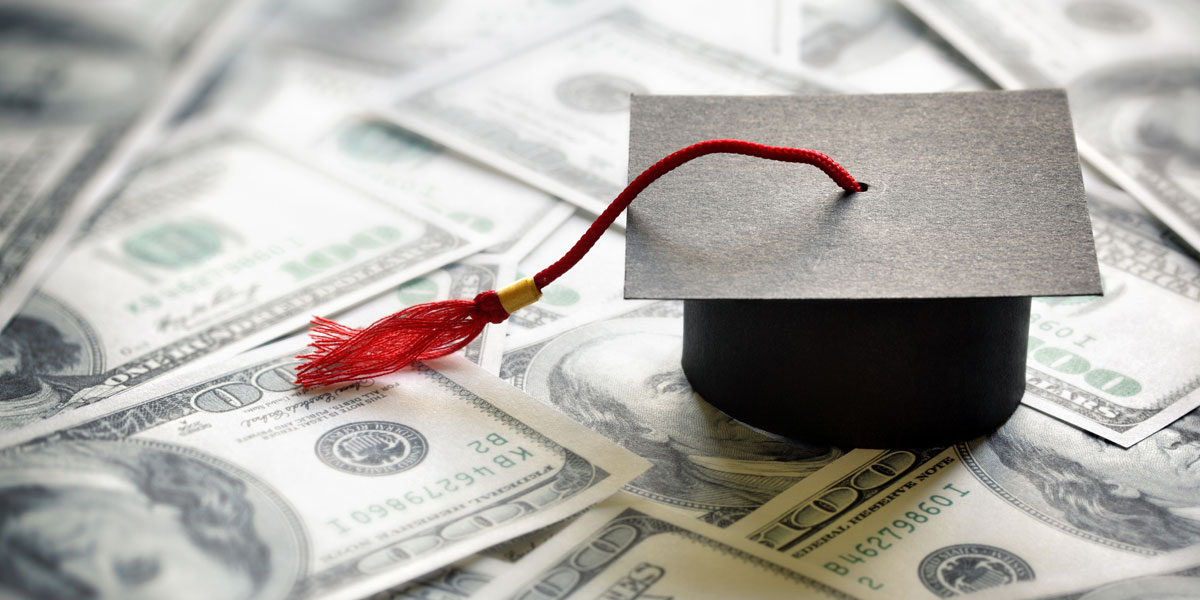This article was reviewed by the Columbia Southern University Office of Financial Aid.
As a current or future college student, your priorities include taking full advantage of your college experience, learning as much as you can, and earning a degree. Figuring out how to pay for school can feel like a significant hurdle to overcome, and many students wouldn’t be able to finish their degree without some form of financial aid.
You may find yourself asking “What can financial aid be used for? Can you spend financial aid money on anything?” In this article, we break down how federal student aid can and cannot be used.
Federal Student Aid Basics
According to a Private Student Loan Report published by Enterval Analytics in January 2024, approximately 92% of student loans in the U.S. are federal loans made through or guaranteed by the Department of Education. Those are the ones we’ll be primarily discussing here.
Federal student aid works like this: once you are granted federal student aid, the money is sent to your school, which collects tuition and fees before dispersing any remaining funds to you. Although this is now your money, you should have a clear understanding of what it can be used for, how much of it is reasonable to spend, and what it will mean once you graduate.
How Federal Student Aid CAN Be Used
Although there is rarely any formal procedure in place for tracking student spending, you are still subject to a set of rules, and – if errant spending is discovered – you will face consequences. However, this will only happen if you fail to constrain your spending to the following allowed expenses:
- Child Care: If you are a parent, you can use some of your federal student aid to cover child care costs, including diapers, babysitting fees, formula, clothes and other expenses.
- Computers and Other Tech: If they are going to be applied to your studies, you can use your aid to pay for computers, software licenses or other tech expenses.
- Disability Services, Support and Equipment: These include expenses specifically related to a disability, helping to ensure your success in school.
- Education Expenses: These can include things like books, study materials, lab fees and even tutoring.
- Food: Whether you live on campus or study remotely, federal student aid can be used to cover your groceries or to pay for a meal plan.
- Housing: Federal student aid can be applied for expenses related directly to on-campus housing, rent and utilities.
- Household Goods and Supplies: These can include toiletries, cleaning supplies, linens, dishware, glassware and other basic household and personal items.
- Professional Expenses: You can also use your federal student aid for professional certification tests, training programs related to your career field, and more.
- Study Abroad: If you end up studying in another country, you can use your federal student aid to pay for housing and other study abroad expenses.
- Transportation: If you own a car, this can be applied to gas, essential repairs and insurance. You can also use your federal student aid to pay for a bus or rail pass, a bike, or other forms of transit.
How Federal Student Aid CANNOT Be Used
Although the list of appropriate uses for federal student aid is straightforward, there are some notable exceptions:
- Cars: Using your student aid for transportation can include gas and maintenance for a pre-owned car, but you cannot use your aid to buy a car during your time in college. If you buy the car using some other means, you can use the aid for gas and repairs, however.
- Clothing: You cannot use your federal student aid to buy new or used clothing.
- Housing Purchases: Federal student aid cannot be used as a down payment or other payment for a property you intend to purchase or have already purchased.
- Nonessential Household Goods: Acceptable housing expenses only apply to essential goods, but cannot include things like a television, video games, expensive cookware, houseplants, wall decorations or other nonessential items.
- Restaurants and Entertainment: Food costs can only include groceries, not any additional expenses while eating out, getting takeout, or other food expenses. Similarly, you cannot use your federal student aid to pay for concert tickets, sports tickets or other entertainment, unless it is in some way related to your studies.
- Travel: You cannot use your federal student aid for any travel expenses other than for study abroad. This includes vacations or non-school related trips, as well as trips home during summer or winter break.
Start Your College Journey at CSU
Navigating what you can or cannot spend financial aid money on can feel overwhelming. When in doubt, contact your school’s financial aid office. Here at Columbia Southern University and at the financial aid office at any school, financial aid professionals are available to assist students with financial literacy resources and preparedness.
Additionally, here at CSU, we believe in the importance of transparency in college costs. Our tuition rates and fees for undergraduate, graduate and doctoral classes can be found front and center on the Tuition and Financing page on our website.
Want to crunch the numbers yourself and see how CSU compares to other schools? Our transparent cost calculator lets you compare tuition and fees for our online degree programs to thousands of others. For more info about this cost calculator, read this Q&A with CSU Chief Marketing Officer Dale Leatherwood.
To learn more about our affordable, accessible and accredited quality online learning options, visit our website.
Multiple factors, including prior experience, geography and degree field, affect career outcomes. CSU does not guarantee a job, promotion, salary increase, eligibility for a position, or other career growth.
Columbia Southern University is accredited by the Southern Association of Colleges and Schools Commission on Colleges (SACSCOC) to award associate, baccalaureate, masters, and doctorate degrees and certificates. Questions about the accreditation of Columbia Southern University may be directed in writing to the Southern Association of Colleges and Schools Commission on Colleges at 1866 Southern Lane, Decatur, GA 30033-4097, by calling (404) 679-4500, or by using information available on SACSCOC’s website (www.sacscoc.org).





